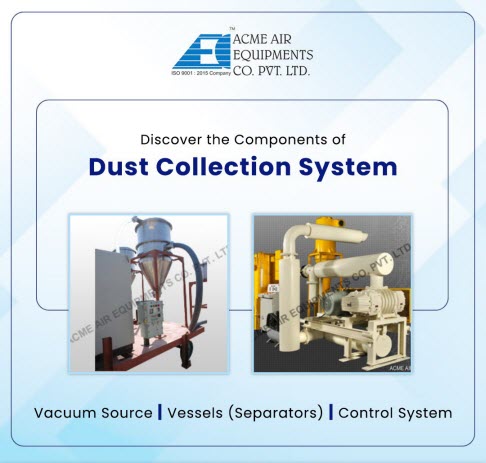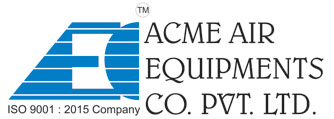Table of Contents
In industrial settings, particularly within heavy-duty industries, managing dust and particulate matter is not just a matter of maintaining clean facilities – it’s a critical aspect of ensuring safety, health and operational efficiency. Dust collection systems are indispensable for heavy-duty industries across Australia and New Zealand, where manufacturing, mining and construction industries dominate the industrial landscape. These systems are designed to capture harmful dust particles, improve air quality and safeguard the health of workers, all while enhancing the productivity of operations.
This article explores the importance of dust collection systems in heavy-duty industries in Australia and New Zealand, discussing their key benefits, challenges and how they contribute to maintaining safe working environments.
How Do Dust Collection Systems Benefit Heavy-Duty Industries in Australia and New Zealand?
The heavy-duty industries in Australia and New Zealand, particularly mining, construction and manufacturing, generate large volumes of dust as a by-product of their operations. The effective management of this dust is essential to maintain both worker health and compliance with regulatory standards. Here’s how dust collection systems benefit these industries:
Health and Safety Compliance
The most significant benefit of a dust collector system is its role in protecting the health of workers. Prolonged exposure to airborne dust, especially fine particulate matter such as silica dust, can lead to severe respiratory conditions such as silicosis or pneumoconiosis. By capturing harmful dust, these systems ensure that the workplace air remains within safe levels and in compliance with health and safety regulations.
In Australia and New Zealand, strict regulations govern workplace air quality, especially in high-risk industries like mining and construction. Dust collection systems help industries adhere to these standards, avoiding potential legal penalties and contributing to a safer working environment.
Enhanced Operational Efficiency
Beyond health and safety, a well-maintained dust collection system contributes to operational efficiency. Dust buildup can clog machinery, reducing its effectiveness and increasing the likelihood of breakdowns. By keeping machinery and equipment clean, dust collection systems can extend the lifespan of industrial equipment and reduce downtime, improving productivity in the long run.
Moreover, systems such as central dust collection systems allow for streamlined dust removal across multiple production lines or areas, reducing the need for localized dust control measures. This results in a more efficient operation and less manual labor for maintenance.

Environmental Impact
Dust not only poses risks to workers but can also contribute to environmental pollution. In countries like Australia and New Zealand, where environmental protection is a significant concern, dust collection systems help mitigate the release of particulate matter into the atmosphere. This not only improves air quality but also helps industries comply with environmental regulations that restrict the emission of pollutants.
Cost Efficiency
By reducing equipment wear and tear, minimizing worker health issues and improving efficiency, dust collection systems can lead to substantial cost savings over time. While there is an initial investment in setting up these systems, the long-term operational savings, including reduced healthcare costs and maintenance expenses, make it a worthwhile investment for heavy-duty industries.
Where Are Dust Collection Systems Most Needed in Australia and New Zealand?
Dust collection systems are essential in a variety of heavy-duty industries across Australia and New Zealand, each with unique challenges and requirements. The following industries are some of the primary users of these systems:
Mining Industry
Mining operations generate large amounts of dust, particularly from activities such as drilling, blasting and transporting materials. Dust control is crucial in these operations to maintain worker safety and meet environmental regulations. Dust collection systems help mitigate the risks posed by airborne particulates, ensuring cleaner air in both open-pit and underground mining environments.
Construction and Demolition
Construction sites and demolition activities generate fine dust, including concrete, wood and asbestos dust. With increasing concerns over health risks, especially with materials like asbestos, construction companies are turning to dust collection systems to protect workers and meet stricter air quality standards.
Manufacturing and Fabrication
Heavy-duty manufacturing industries such as steel production, woodworking and automotive manufacturing generate fine particulate matter that can affect both worker health and equipment performance. Dust collection systems in these industries are critical in maintaining efficient operations and ensuring worker safety.
Cement Industry
The cement industry, known for its heavy dust generation, relies heavily on dust collection units. From the grinding process to material handling, dust is a constant concern. Efficient dust collection is essential in maintaining a clean work environment and ensuring the longevity of machinery.
What Are the Challenges in Implementing Dust Collection Systems?
While dust collection systems offer numerous benefits, the implementation and maintenance of these systems come with challenges:
High Initial Investment
The upfront cost of purchasing and installing a dust collection system can be significant. Heavy-duty industries must evaluate the long-term benefits, including reduced healthcare costs, improved equipment longevity and regulatory compliance, to justify this investment.
Regular Maintenance
Like any industrial equipment, dust collectors require regular maintenance to function efficiently. Filters need to be cleaned or replaced and systems should be inspected to ensure that they continue to operate at optimal levels. This requires skilled personnel and may lead to downtime during maintenance periods.
Space and Integration Challenges
In large facilities, installing a central dust collection system can require significant space and complex integration with existing processes. It is essential to design systems that fit within the available space while maintaining high levels of efficiency and airflow.
Conclusion
Dust collection systems are vital for heavy-duty industries in Australia and New Zealand. They play a crucial role in improving air quality, protecting worker health, enhancing operational efficiency and meeting environmental standards. The adoption of these systems helps industries stay compliant with safety regulations and reduces the risks associated with airborne particulates, which can lead to severe health problems and equipment damage.
With the growing demand for cleaner, safer work environments, the role of dust collectors will only continue to expand, providing long-term benefits that outweigh the initial installation and maintenance costs. Heavy-duty industries in these regions should prioritize the implementation of effective dust collection systems to ensure a sustainable and efficient future.
FAQs About Dust Collection Systems
What is a dust collection system?
A dust collection system is a system designed to capture and remove dust and particulate matter from the air in industrial environments, helping to maintain air quality and worker health.
Why are dust collection systems essential in the mining industry?
Dust collection systems in the mining industry are essential to mitigate the health risks posed by dust inhalation and to ensure regulatory compliance with air quality standards.
How do cyclone dust collectors work?
Cyclone dust collectors use centrifugal force to separate larger particles from the air stream, which are then collected in a bin while cleaner air exits the system.
Can dust collection systems be customized?
Yes, dust collection systems can be customized based on the specific requirements of an industry, including the type of dust, air volume and system design.
How often do dust collection systems need maintenance?
Dust collection systems require regular maintenance, including cleaning or replacing filters and inspecting the system to ensure optimal performance and prevent system failures.
About Author

CEO
Mr. Vishwesh Pardeshi is the CEO of Acme Air Equipments Company Pvt. Ltd., an industrial and engineering goods manufacturing company based in Ahmedabad, Gujarat (India). He has taken over the responsibility from founding Partners and Directors of the Company, and is now leading a talented group of professionals since 2020 by bringing in vast industrial and management expertise. By qualification, he holds a Bachelor Degree in Mechanical Engineering and also holds a MBA degree from reputed institutes. Under his leadership, the Company has successfully executed prestigious projects by delivering high quality and world class products from a state of the art manufacturing facility which combines CNC-enabled precision manufacturing and strong after sales support. In line with the Vision, Mission and Core Values of the Organization, Mr. Vishwesh Pardeshi continues to drive Quality, Reliability and Global Expansion at Acme Air Equipments Co. Pvt. Ltd.









